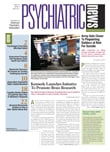Cocaine use appears to contribute directly to the development of cognitive deficits such as impairments of visual working memory and difficulty adapting to rule changes in reward tasks, according to an animal study reported in the March 30 Journal of Neuroscience.
A wide range of cognitive difficulties is seen among cocaine users, but it hasn't been clear whether these problems reflect preexisting traits that made them more susceptible to drug abuse or are caused by the drug itself, according to lead author Charles Bradberry, Ph.D., an associate professor of psychiatry at the University of Pittsburgh School of Medicine, and colleagues.
In the study, the researchers assessed cognitive skills in 14 rhesus monkeys, six of whom learned to touch an abstract shape on a touch screen to receive a sip of water, while eight used the touch screen to receive a cocaine infusion via a special access port into a blood vessel. Self-administration took place on four consecutive days over nine months.
A total of 36 weekly cognitive assessments were conducted on Mondays after a 72-hour drug-free period.
On each cognitive assessment day, three novel, visually distinct stimuli were used that required the subjects to learn a new stimulus-reward association for receiving water at the beginning of each session. The task began with presentation of a blue square that the animal had to touch, thereby indicating it was attending to the task; touching the blue square led to random presentation of two of the three stimuli, associated with a high, medium, or low water reward.
The researchers found that the cocaine group learned the initial rules as quickly and at first responded as accurately as the water-only group, but only five of the eight achieved the threshold of correct responses, defined as 27 correct responses out of 30 trials. The researchers then increased the difference between high and low rewards, which allowed the remaining three monkeys in the cocaine group to get to threshold.
Bradberry and colleagues said that the experiment demonstrates that cocaine users have a hard time maintaining focus and attention, but if the reward value associated with learning tasks is increased, it may be possible to overcome cognitive deficits.
When the researchers changed the rules so that the images associated with high- or low-water reward were reversed, they found that the cocaine group had much greater difficulty learning and adapting to the change in rules. This difficulty indicates a deficit in cognitive-control processes or executive brain functions that require focus and that guide volitional, goal-directed behavior, according to the study.
"These results represent a unique study in which a broad range of cognitive domains were studied longitudinally in nonhuman primates to determine the effects of chronic cocaine self-administration," wrote the researchers. "The results strongly suggest that, in addition to the substantial literature indicating the contribution of inherent differences between individuals for risk of addiction, cocaine use by itself causes cognitive deficits. Understanding the neurobiological basis of these deficits may help in the development of therapeutic approaches to address them."
The study was funded by the National Institute on Drug Abuse and the Veterans Affairs Medical Research Service.
